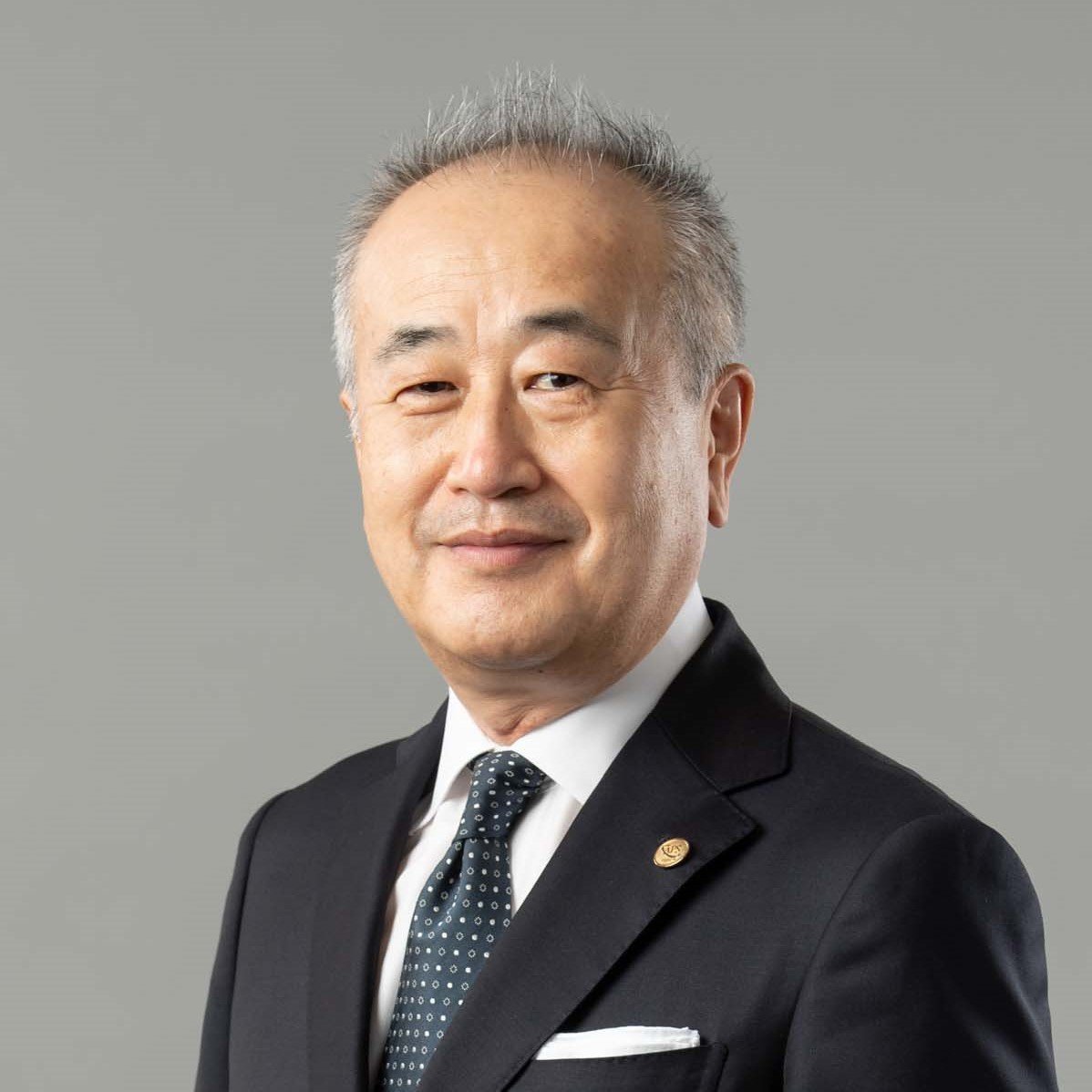YAMADA Hiroshi
(Professor/Division of Transdisciplinary Sciences)
Department of Advanced Energy/Fusion Science (Magnetic Confinement Experiment)

Career Summary
1982: Graduated from Faculty of Engineering (The University of Tokyo)
1984-1985 Visiting researcher (Princeton Plasma Physics Laboratory)
1987: Received engineering doctorate from The University of Tokyo
1987: Research associate (Institute of Plasma Physics, Nagoya University)
1989: Research associate (National Institute for Fusion Science)
1993-1994 Dipatched to Max-Planck Institut fuer Plasmaphysik by MOE
1995: Asoociate professor (National Institute for Fusion Science)
2001-2002 Guest Associate professor (Institute of Advanced Energy, Kyoto University)
2004-2020: Professor (National Institute for Fusion Science)
2004-2017: Professor (SOKENDAI,Graduate University for Advanced Studies)
2015-2020: Fellow (National Institute for Fusion Science)
2017-2020: Guest professor(The University of Tokyo)
2020: Professor(The University of Tokyo)
Educational Activities
Graduate school:Plasma Physics and Controlled Nuclear Fusion, Fusion Energy Engineering
Faculty of engineering:Fusion Engineering and Reactor Design
Research Activities
We are doing research of plasma physics and controlled nuclear fusion based upon magnetic confinement experiments. It is easily imagined that energy issue will be becoming more serious in this century. Fusion could be a game-changer to address this issue. Temperature beyond 100 million degrees Celsius is required to make fusion happen and fuel of hydrogen becomes plasma which is ionized gas. This plasma is extremely complex system though not to the extent in life and a fusion reactor is also a complex engineering system. It has been already demonstrated only to make plasma with the temperature beyond 100 million degrees Celsius. Nonetheless, much more and further efforts to get scientific understanding of plasma in depth and to establish advanced control technology which works in extreme environments are still required for realization of fusion energy. For those purposes, we are tackling studies for establishment of physics model to predict behavior of plasmas with much non-linearity and engineering control of system dynamics such as fuel cycle. The major experimental platform is the Large Helical Device(LHD) at National Institute for Fusion Science (Toki, Gifu).

Control room of LHD experiment.

Scaling law of energy confinement time.

Solid hydrogen fuel pellet ablating in plasma.
Literature
1) H.Yamada, K.Tanaka, R.Seki, C.Suzuki, K.Ida, K.Fujii, M.Goto, S.Murakamki, M.Osakabe, T.Tokuzawa, M.Yokoyama, M.Yoshinuma "Isotope Effect on Energy Confinement Time and Thermal Transport in Neutral-Beam-Heated Stallarator-Heliotron Plasmas" Physical Review Letters 123 (2019) 185001.
2) H.Yamada, M.Yokoyama, R.Seki, C.Suzuki, S.Murakami, Y.Yoshimura, H.Yamaguchi, S.Maeta "Effect of Rotational Transform on Thermal Transport in Stellartor-Heliotron Plasmas on LHD" Journal of Fusion Energy Vol.36, Issue 6 (2017) pp.197-203.
3) H.Yamada, R.Kasada, A.Ozaki, R.Sakamoto, Y.Sakamoto, H.Takanega, T.Tanaka, H.Tanigawa, K.Okano, K.Tobita, O.Kaneko, K.Uchigusa "Development of Strategic Establishment of Technology Bases for a Fusion DEMO Reactor in Japan" Journal of Fusion Energy Vol.35, Issue 1 (2016) pp.4-26.
4) R.Sakamoto, H.Yamada "Prospects for Self-Burning Operation in Heliotron-Type Fusion Reactor"IEEE Transactions on Plasma Science Vol.44 (2016) pp.2915 - 2922.
5) H.Yamada, R.Kasada, A.Ozaki, R.Sakamoto, Y.Sakamoto, H.Takenaga, T.Tanaka, H.Tanigawa, K.Okano, K.Tobita, O Kaneko, K.Ushigusa "Japanese Endeavor to Establish Technological Bases for DEMO" Fusion Engineering and Design Vol.109-111 (2015) pp.1318-1325.
6) H.Yamada "Magnetic Confinement Experiments: Plasm-Material Interactions, Divertors, Limiters, Scrape-Off Layer, Stability, Wave, Current Drive, Heating, Energetic Particles" Nuclear Fusion Vol.53, No.1 (2013) pp.104025.
7) H.Yamada "Overview of Results from the Large Helical Device" Nuclear Fusion Vol.51, No.9 (2011) pp.094021
8) H.Yamada, K.Watanabe, S.Sakakibara, Y.Suzuki, S.Ohdachi, M.Kobayashi, H.Funaba "Study of High-Beta Plasmas in a Helical System" Contributions to Plasma Physics Vol.50, No.6-7 (2010) pp.480-486.
9) H.Yamada, J.Harris, A.Dinklage, E.Ascasibar, F.Sano, S.Okamura, J.Talmadge, U.Stroth, A.Kus, S.Murakami, M.Yokoyama, C.Beidler, V.Tribaldos, K.Watanabe "Characterization of Energy Confinement in Net-Current Free Plasmas Using the Extended International Stellarator Database" Nuclear Fusion Vol.45, No.12 (2005) pp.1684-1693.
Other Activities
The Japan Society of Plasma Science and Nuclear Fusion Reseach (JSPF)
The Physical Society of Japan (JPS)
Atomic Energy Society of Japan (AESJ)
Amerinca Physical Society (APS): Fellow
Program Officer, Research Center for Science Systems, Japan Society for the Promotion of Science
Member, Research and Develpment Agency Council of Ministry of Education, Culture, Sports, Science and Technology (MEXT)
Member, Science Advisory Committee(Fachbeirat), Max-Plank Institut fuer Plasmaphysik
Member, Science and Technology Advisory Committee, ITER Council
Scientfic Research Senior Specialist, MEXT (2004-2010)
Science Adviser, MEXT (2010-2016)
Future Plan
Our laboratory aims at achievements which have international impact in research of high temperature plasmas for realization of fusion energy. For this purpose, we will be tackling studies of physics related to energy confinement and heat/particle transport and engineering control of them. We will be making full use of the large scale experiment such LHD and experimental projects abroad through collaboration and coordinated joint work. In particular, hydrogenic isotope effect and plasma termination phenomena are major subjects and informatics approach is emphasized in acceleration of our research.

Fusion plasma in LHD.
Messages to Students
I believe that it more important to question the way of thinking than to alternate between success and failure in consequence. Indeed, we always meet failure. We must no take the way out. With treasure of curiosity, a sense of justice and cooperativeness, why don't you feel excited at the cutting-edge frontier with us ? If it is a game-changer for world-wide issues, it would be more exciting. Fusion is certainly one of them.
